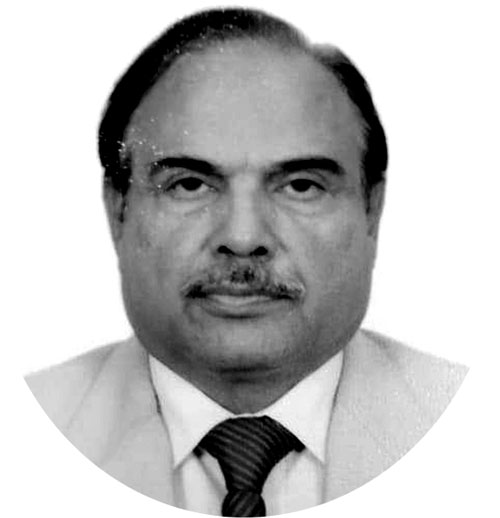Internet voting, opportunities and challenges
Just like reserved seats for women, minorities, religious scholars and technocrats, these elections are held as per party list submitted by the political parties based on which ECP allocates seats on the basis of seats won in the Senate, National and Provincial Assemblies.
Moreover, all National Identity Card for Overseas Pakistanis (NICOP) holders are registered as voters in the respective electoral areas as per the permanent address in Pakistan mentioned on the NICOPs.
On the election-day, if they happen to be present at their permanent address in Pakistan, they can vote at the respective polling stations allocated to their electoral areas.
Internet voting by OPs: The option of remote voting by Overseas Pakistanis, using the modern information and communication technologies for Internet-voting, has been under consideration among electoral stakeholders.
The ECP has been considering this option along with other viable options thorough consultations with all electoral stakeholders, particularly the political parties and Parliament.
Internet-voting requires smart visual card and scanning equipment for voters’ identification and authentication.
This methodology is very complex, highly technical, time-consuming and resource-intensive process which violates the basic principle of ‘Universal and Equal Suffrage’ and liable to compromise the two of the most important principles: ‘Secrecy of the Ballot’ and ‘Free Voting Procedures’.
Some of the issues related to this methodology are:
• There is possibility of unauthorized intervention of third party in voting process.
• It is more difficult to identify any error and technical malfunctioning which can jeopardize the exercise.
• As stated above thousands of electors will be deprived of their right to vote for not knowing how to cast vote or for not having access to internet.
Internet voting in international perspective: Many countries allow Internet/on-line voting for their citizens living abroad, particularly technologically advanced nations, such as, Austria, Australia, India, Estonia, France, Poland, Switzerland, the United States and Canada.
Introduction of new voting technologies at full scale implementation, without extensive and in-depth research, evaluation and a series of mock and live pilot projects, have been counter-productive.
The experiences of developed and developing countries in the use of advanced technologies has mostly fallen short of delivering the desired results.
Resultantly, some of the most advanced countries of the world have rolled back or chosen not to deploy Internet-voting and electronic voting machines (EVMs) not only on the basis of technical and security concerns but also due to lack of transparency, public trust and legitimacy issues apart from financial, operational and functional aspects.
While Pakistani electors living in Europe and America may be able to utilize this facility effectively, it will be problematic for those working in the Middle East as labourers, who are almost 70% of Pakistanis living abroad.
Element of trust and confidence on electoral management bodies is of paramount importance which unfortunately lacks in developing and underdeveloped countries.
If the technological voting solutions compromise fundamental election standards/properties like universal and equal suffrage, ballot secrecy, verifiability, coercion resistance and election integrity, it can lead to serious legal and political implications, questioning the very integrity of the whole electoral process.
Internet-voting platform for casting of votes by Ops: The honourable Supreme Court of Pakistan convened a session of representatives of political parties, general public, media, IT experts, NADRA and ECP on 12 April 2018, pertaining to the voting rights of Overseas Pakistanis.
The purpose of this session was to discuss the Internet-voting platform developed by NADRA to allow Overseas Pakistanis to cast their vote.
On the directions of Supreme Court of Pakistan, ECP constituted Internet Voting Task Force to undertake a forensic/technical audit of Internet-voting platform developed by NADRA.
The report of Internet Voting Task Force was submitted to the Supreme Court of Pakistan and ECP.
This report is mostly related to technical and security concerns and serves as an informative and useful resource for development of Internet-voting solution for Pakistan.
The experiences of other countries in using Internet-voting and other electoral technologies for voting by out of country citizens, normally remains obscure from public debate.
The report concluded that Internet-voting is a high controversial issue on basis of technical and security concerns.
Scope and Magnitude of Internet-voting Live Pilot Project
The ECP and NADRA made comprehensive presentations before the Supreme Court.
On the basis of these presentations and a third party validation from independent experts (Internet Voting Task Force) regarding, safety, integrity and workability of the system; the Supreme Court asked ECP to utilize Internet-voting system being safe, reliable and effective for a pilot project for Overseas Pakistanis to cast their vote in the bye-elections in 35 constituencies of National and Provincial Assemblies of Pakistan to be held on 14 October 2018.
Accordingly, ECP framed Rules 84-A, 84-B and 84-C of the Election Rules. — To be continued.
—The writer is former Federal Secretary Election Commission of Pakistan and currently Chairman National Democratic Foundation.










